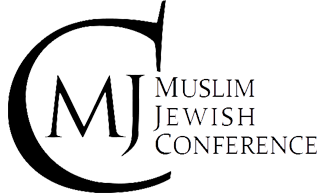Second annual MJC 3rd – 8th July 2011 – Kiev, Ukraine
Kiev is the capital of Ukraine with a population of about 3 million citizens. It is situated on the Dnepr River and boasts architectural monuments that are recognized world treasures. Kiev is the largest cultural, scientific and industrial center of Ukraine, a place of religious pilgrimage and a very attractive tourist destination. Its beautiful landscapes, parks and gardens charm and captivate. Kiev boasts a long and glorious history full of heroic deeds. It is called “the mother of Slavic cities” by right. The golden age of Kiev falls on the 11th-12th centuries, when Kiev Rus was a powerful state, the center of trading routes between the Baltic and the Mediterranean. For long centuries Kiev was badly damaged and looted, but Kiev has survived and still amazes the contemporaries with its sublimity and beauty.
Committee overview
The conference was split into 3 committees:
1. Fissures and Footprints
Stories of collective memories and comparative identities.
Participants had a forum to express and explore each others’ ideas on identity through the construction of personal narratives, focusing on Muslim and Jewish identity. This provided a meaningful experience and provoked thoughts about how to include this type of dialogue in interfaith encounters throughout life; formal and casual, public and private. The best ways to share gained insights and to usefully research were discussed in order to promote public awareness about the complexity of Muslim and Jewish identities. Activities focused upon listening to each other and specifically the dialogue about personal narratives and the broader societies to which they relate to; acknowledging painful memories and distinguishing between history and memory; and thinking carefully about how to design a process of substance as well as constructive dialogue. The committee planned ways to effectively support each other, working on these topics locally.
2. Crossroads in the Future
The route of sustainable dialogue.
How to become a concerned individual, effectively minimize, prevent and combat tensions between groups, destroy stereotypes and prejudices and build a common language to establish relations based upon mutual respect. How to engage each other and which tools are necessary in the process. This committee explored the practical steps needed for effective long-term community dialogue and action; defining critical questions rooted in identity and culture, essential to such a process. Committee members learned the tools and means to become future leaders and activists, within the dialogue process, whilst keeping in mind the sensitive issues that are at the heart of identity conflicts and finding ways of utilizing the potential to connect people throughout different social contexts. The committee worked towards drafting a proposal for tangible community projects that will seek implementation after the completion of the Muslim Jewish Conference.
3. Countering the Politics of Hatred
Joining forces against both phenomena – Islamophobia and Anti-Semitism.
Developments within the discourse surrounding immigration, secularization, and religious identities, anti-Islamic and anti-Semitic resentments are not only gaining importance as a political agenda, used by right winged parties like f.e FPOe (Austria), Vlaams Belang (Belgium), PVV (The Netherlands) and Front National (France) but across the general political landscape. On the other hand, some sections of the Muslim communities such as Hizbollah’s channel “Al-Manar” for example, adopt anti-Jewish resentments often rooted in old European and Christian stereotypes and prejudices about Jews. These negative images are spread in web blogs and discussion-boards, via video blogs and books or journals. This committee therefore created awareness concerning the mechanisms and functions of both anti-Semitism and Islamophobia in generating hierarchical structures within societies. The committee will examine the historical, theoretical and ideological foundation of both anti-Semitism and Islamophobia and the organizations enforcing it. The aim of the committee was to understand the forces at play behind these phenomena and find ways to reduce them, supported by arguments and projects from/with Muslims and Jews within our communities and the society at large.
Theme
The ‘MJC’ 2011 found itself under the patronage of Russell Simmons and Rabbi Marc Schneier and with the theme of a ‘Call For Action’. The aim of this year’s conference was to take forward the commitments made at the first MJC and build a network of action with actual implementable projects. The conference included a visit to the Holocaust memorial in Babi Yar, by the 70 Muslim and Jewish participants from more than 25 countries. It also consisted of committees, focused on dialogue, guest speaker sessions, discussion panels and social events. Nine concrete on-the-ground and online projects were created by the conference participants during the week, with the aim of implementing them in their respective communities as well as through social media.
Guest Speakers
Walter Ruby, has served as Muslim Jewish Relations Officer for The Foundation for Ethnic Understanding (FFEU).

